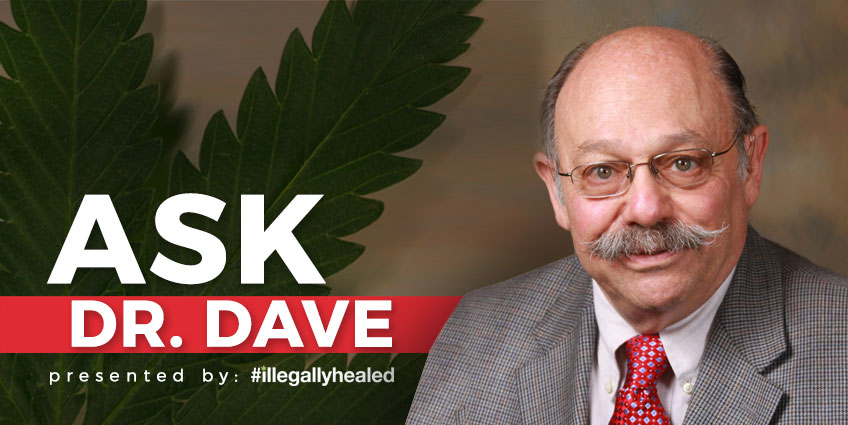Dear Dr. Dave,
Following brain surgery, I suffer the effects of severe concussion. I use cannabis to control my mood swings and to stop the associated “flying off the handle” episodes. My question, what would be the medical explanation of why this works so well?
-Craig in New Zealand
Dear Craig,
There are numerous studies showing that cannabis is a neuroprotective in the cases of brain injury and stroke. Dr. Rapahael Mechoulam developed semi-synthetic Dexabinol based on research of this neuroprotective effect.
Brain surgery certainly bears some resemblance to traumatic brain injury (TBI). I also would not be surprised that the ordeal of the reason for the surgery itself caused post-traumatic stress disorder (PTSD). Both TBI and PTSD affect the brain to increase the speed of neurotransmission. This increased speed gives the mid-brain more influence in thinking. The more the mid-brain (or reptilian brain) has control the less opportunity there is for the fore-brain to use more rational thought to override it, meaning more acting first and thinking later. By slowing down the speed of neurotransmission through retrograde inhibition through cannabis use, we allow the fore-brain the proper time to respond to rationalize and control the urges.
For more on cannabis and retrograde inhibition, I suggest reading the work in O’Shaughnessy’s by the late Dr. Tod Mikuriya as well as the 2004 Scientific American Article “The Brain’s Own Marijuana” by Alger and Nichol. This should be a good start in better understanding impulse control issues associated with brain surgery and the potential benefits derived from medical cannabis.
-Dr. Dave.


Comments 2
Thank you so much for this definitive explanation to my question.
I’ll be using it as evidence (along with my Neurosurgeons report) when I apply for a medical Cannabis prescription here.
Cheers
Craig.
Hi I’m very interested in finding out about cbd capsules and thc capsules as I have a sister who has terminal cancer the cancer is in her lungs and spine